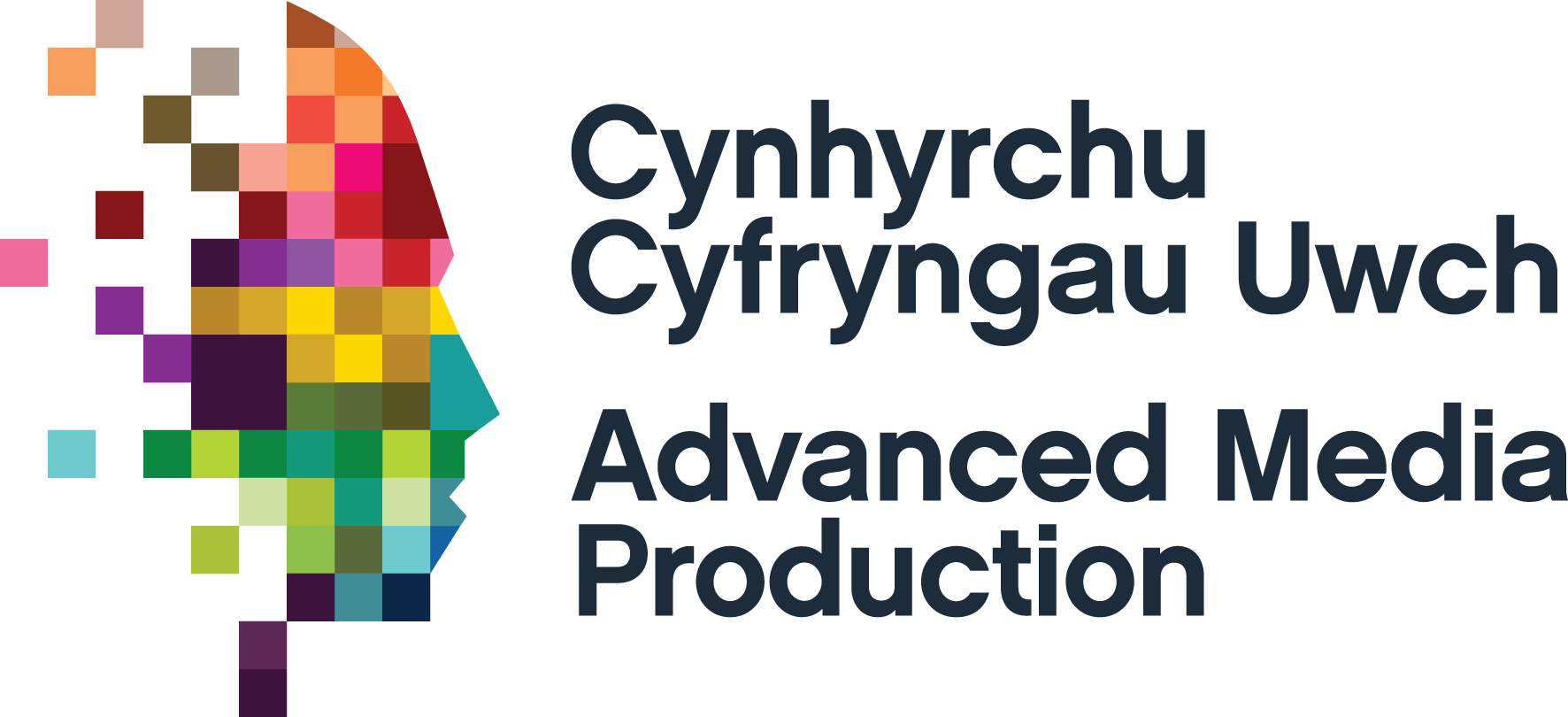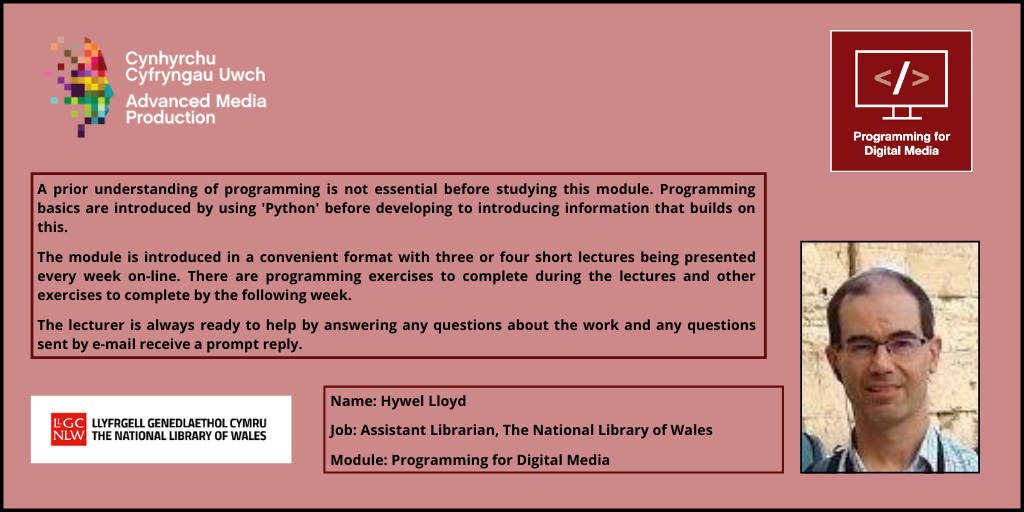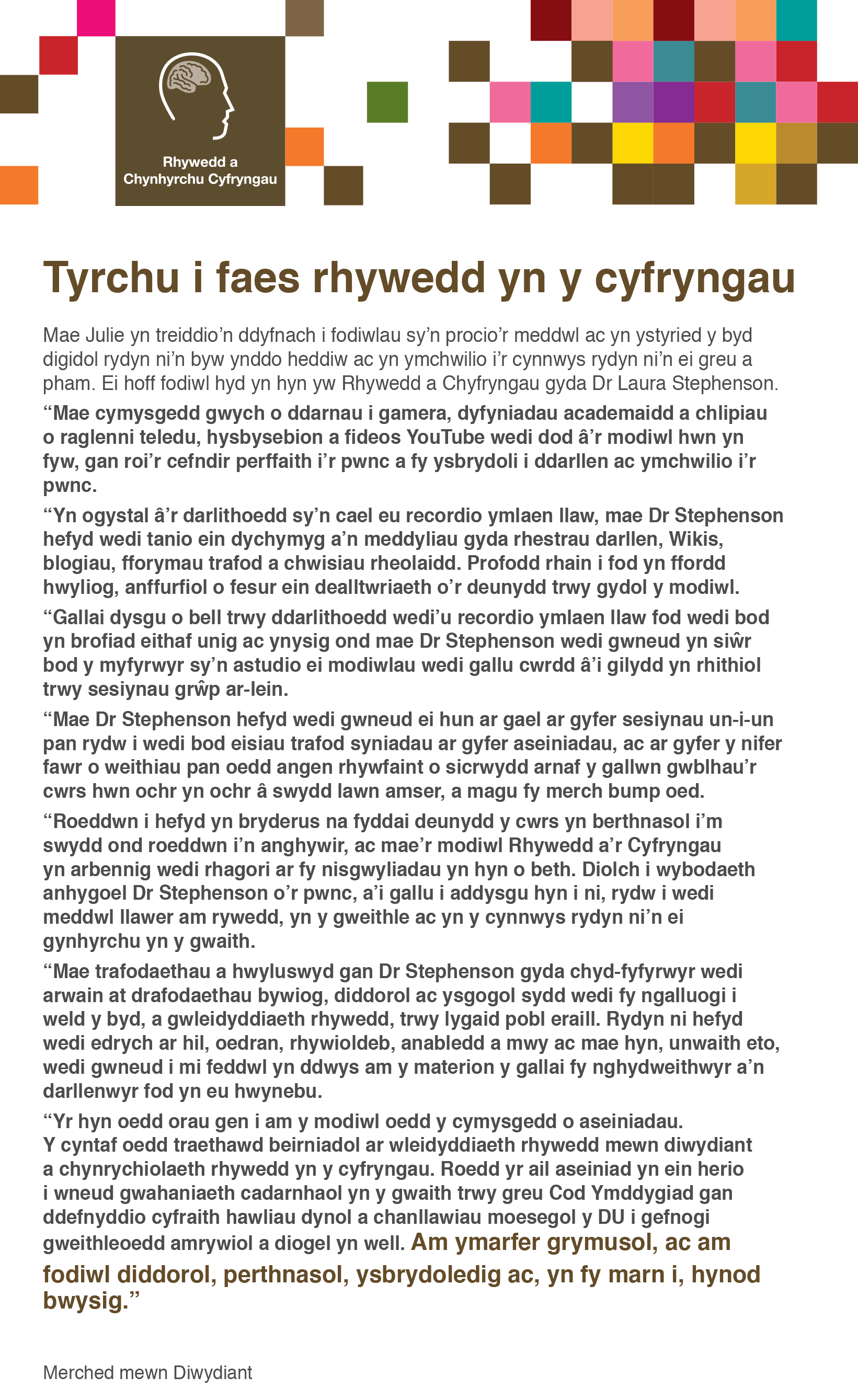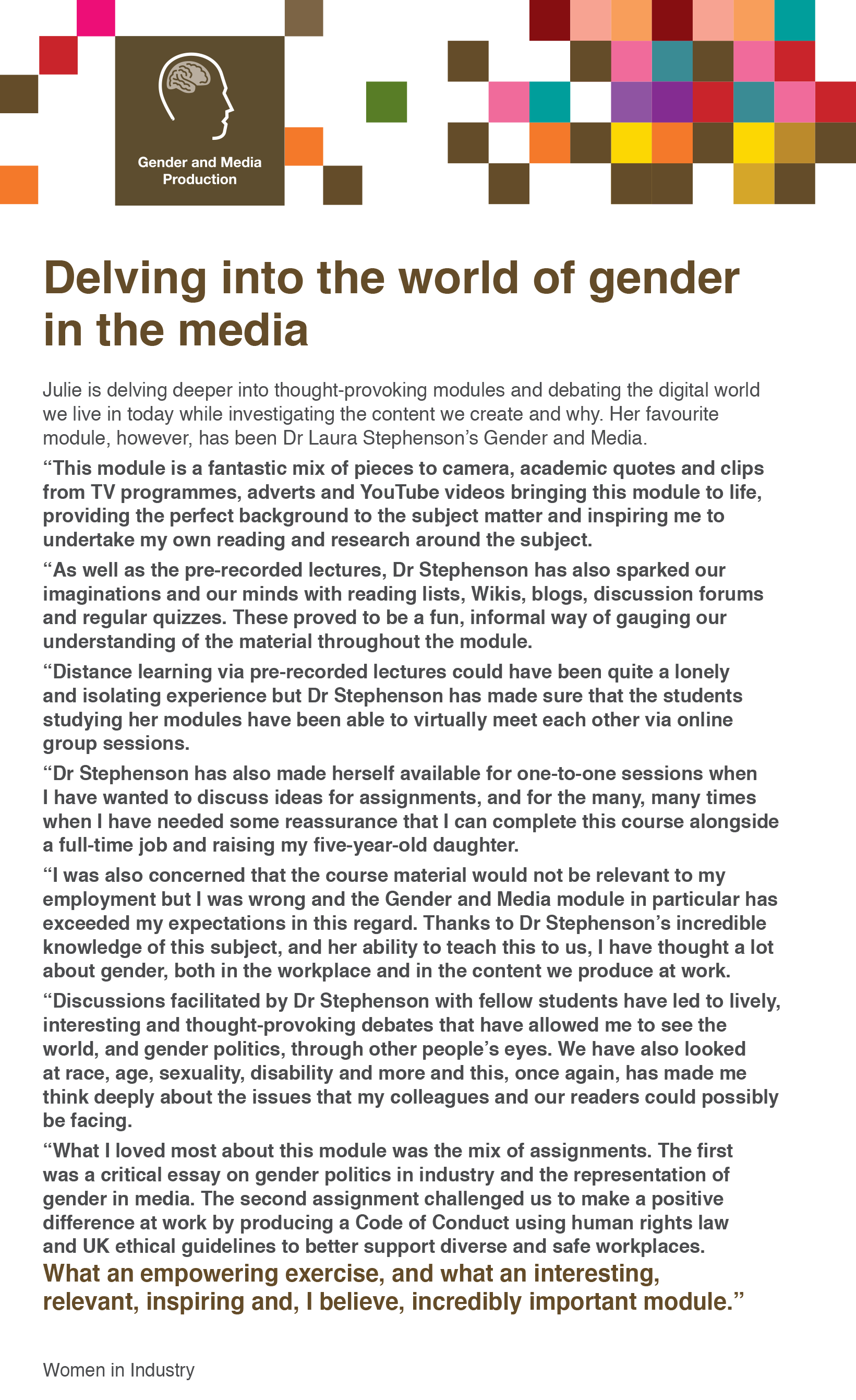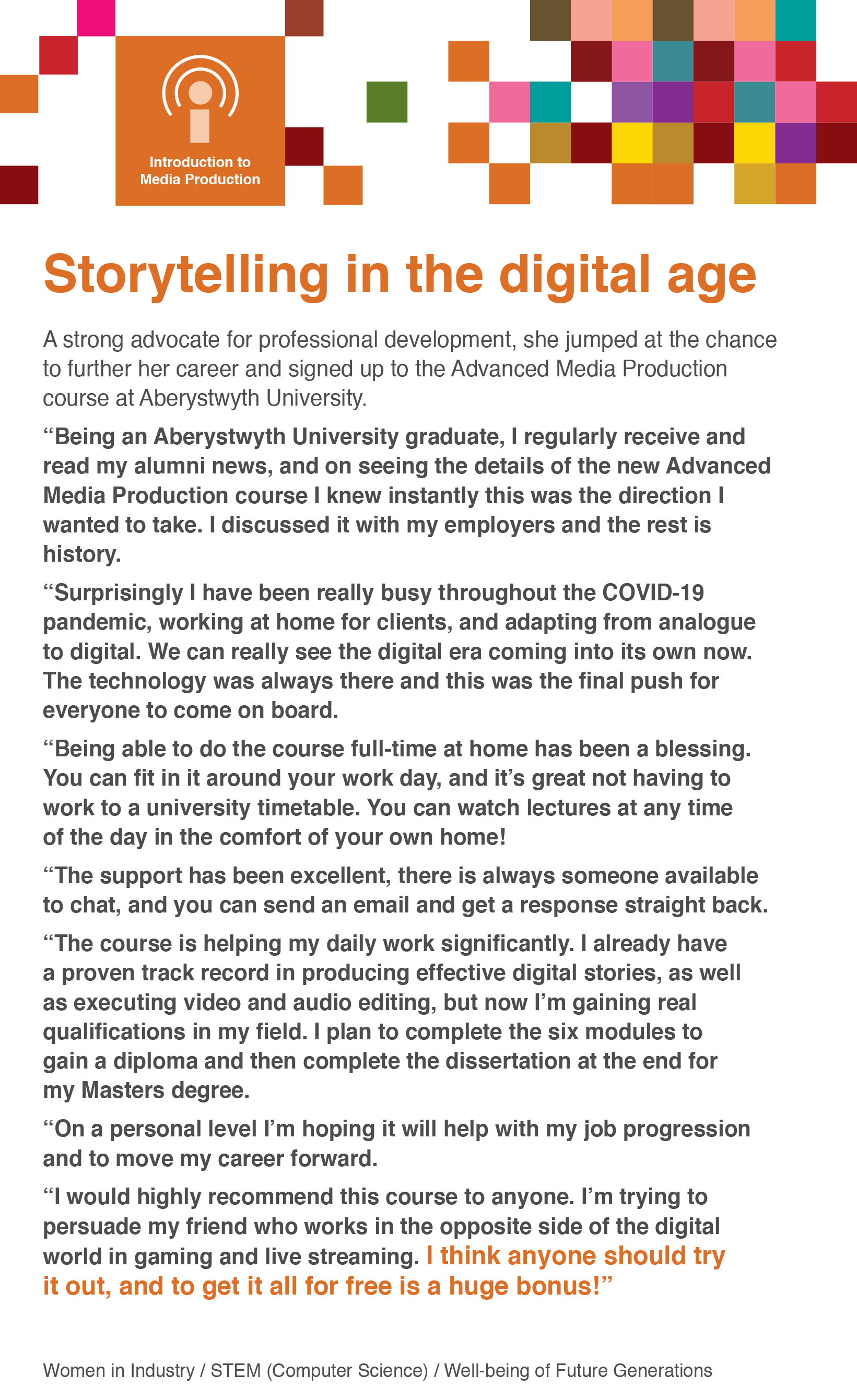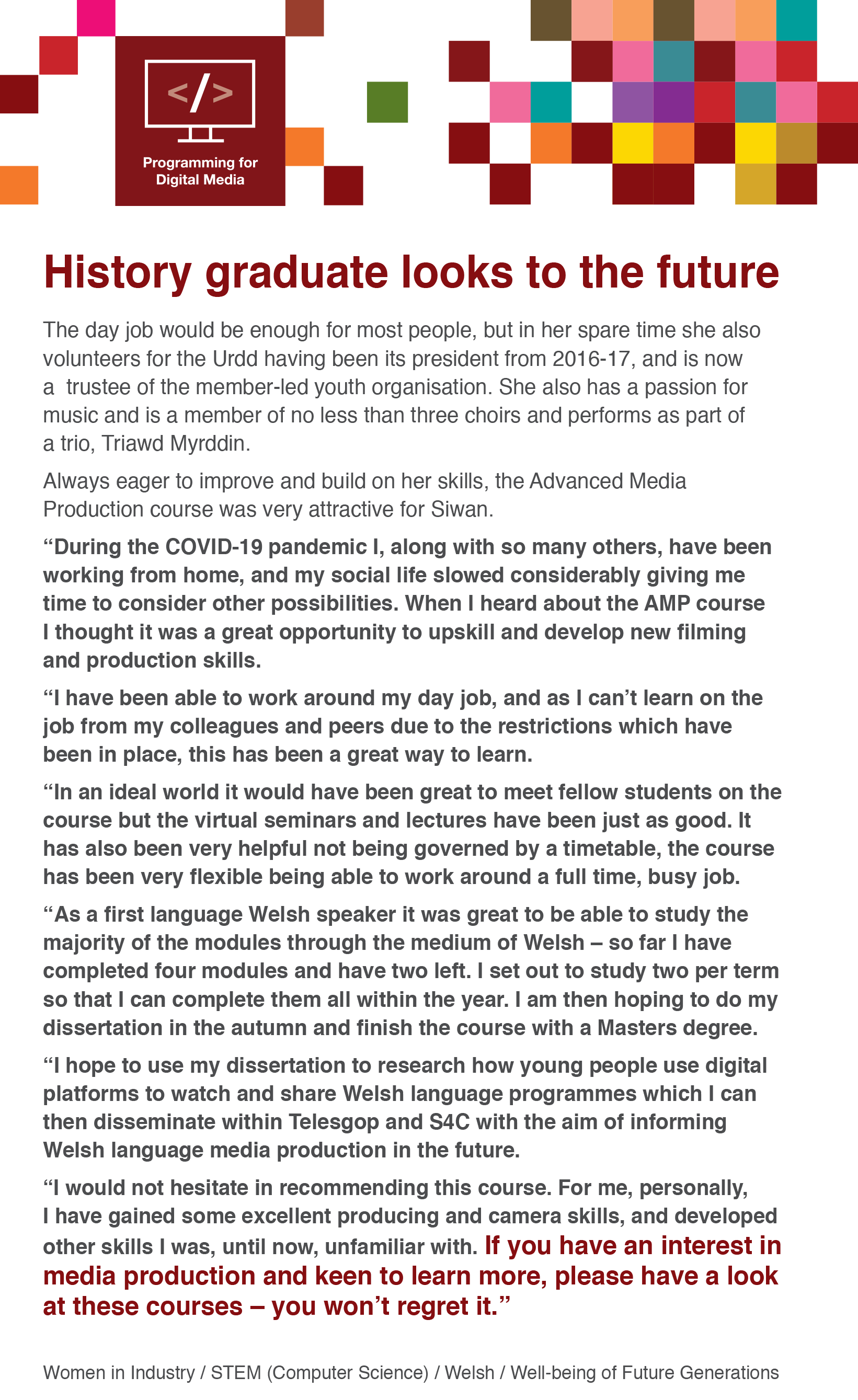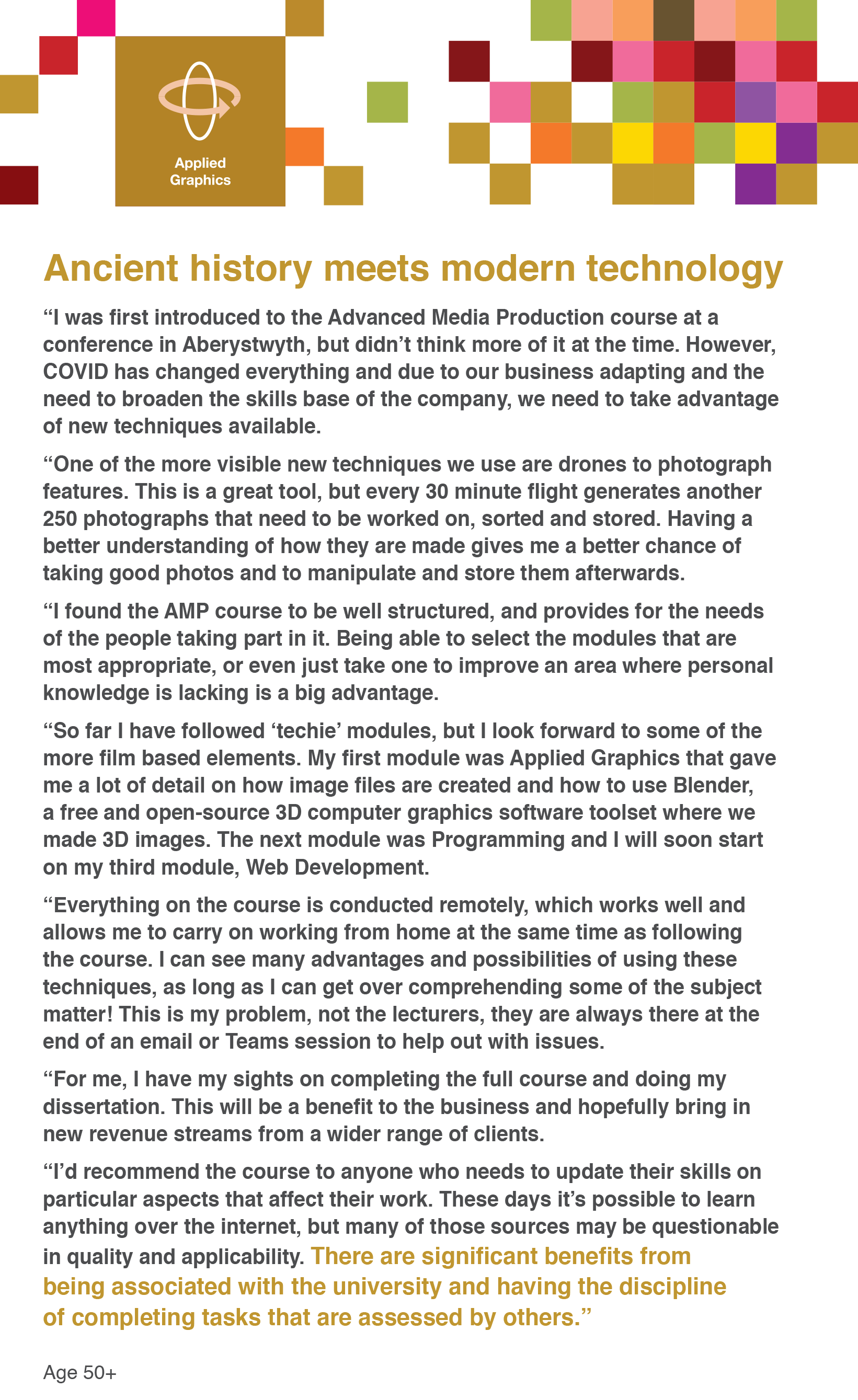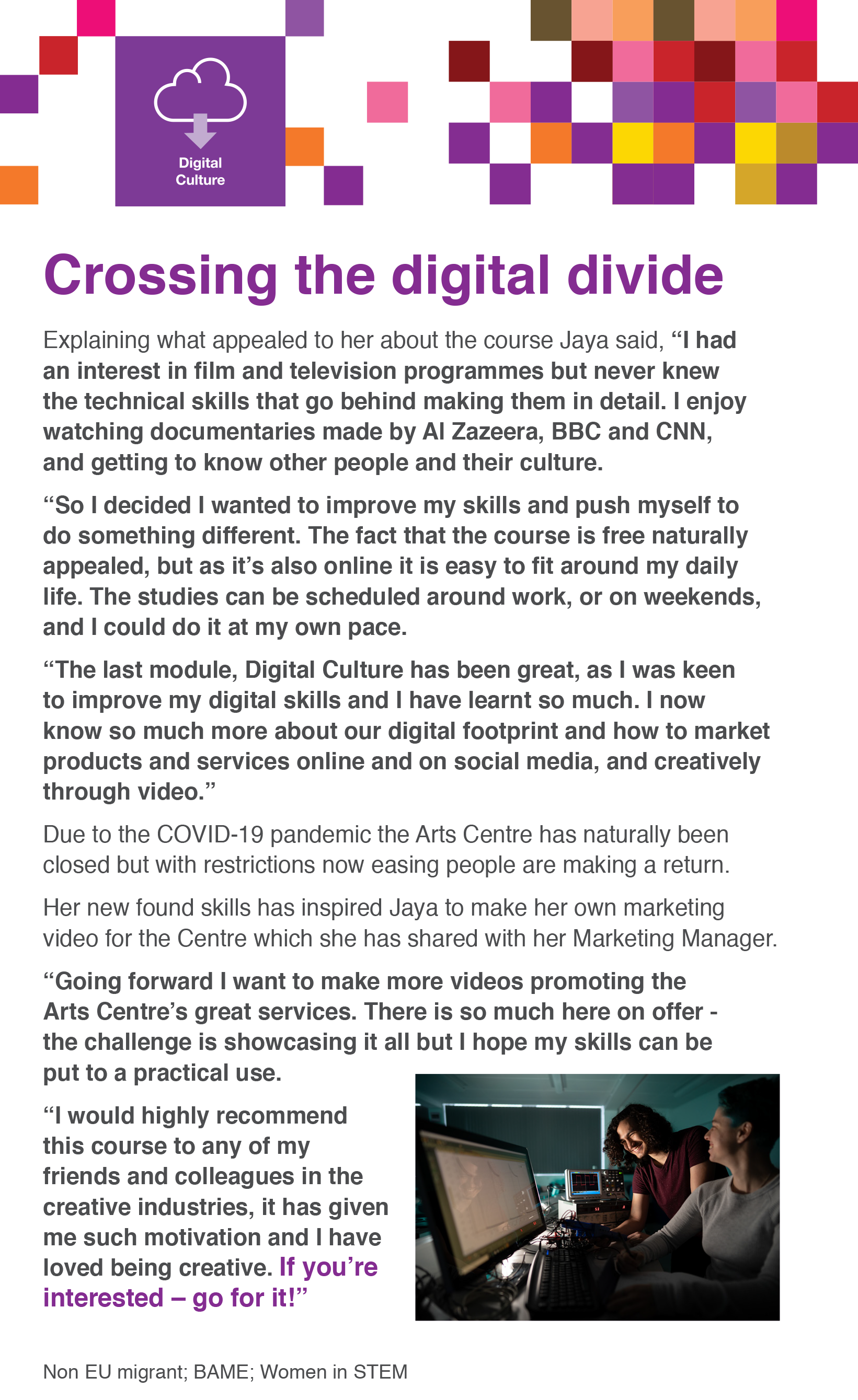Home / Study with us / Modules & Timetable / Programming for Digital Media
Programming for Digital Media
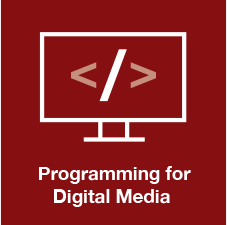
This module introduces you to the basics of computer programming, focusing on programming around digital media – images and sound. You will learn how to program a computer to do simple tasks with digital media files using the Python language and learn to appreciate different approaches to programming, their possibilities and limitations.
Learning objectives
On successfully completing this module, you should be able to:
- Demonstrate a detailed fundamental and practical knowledge of programming, including computational logic and interaction with data.
- Evaluate the relative limitations and merits of different programming technologies.
- Communicate technological potential and limitations to both the creative industries community and other stakeholders, including policy makers and the public.
Content
The module uses a series of recorded lectures, guided reading, practical worksheets and workshops, concentrating on the following areas:
List of units
| Block 1 |
|---|
| 1. Getting Started: what is a program and why do we want to be able to program? Set up a programming environment so we can write and run our own programs. |
| 2. Basic Building Blocks: variables and operations. The “bricks” from which programs are built. |
| 3. Sub-assemblies: statements and data structures. Starting to build more complex code. |
| Block 2 |
|---|
| 4. Re-using Code: functions and libraries. Writing code in reusable blocks and using and writing libraries that contain such blocks. |
| 5. Persistent Data: file input and output. With a focus on media data. |
| 6. Documenting and Testing: make our code usable by other people and establish how well it works. |
| 7. Object Orientation: using data that combines properties with the operations we can undertake on these properties. |
| Block 3 |
|---|
| 8. Computational Thinking: how to think like a programmer. |
| 9. Approaches to Programming: the variety of programming languages encompasses different “paradigms” – approaches – that make them more suited to different areas. |
| 10. Software Development: approaches to the process of design and reaching agreement among stakeholders. |
Lecturers: Dr Jonathan Bell, Dr Edore Akpokodje
